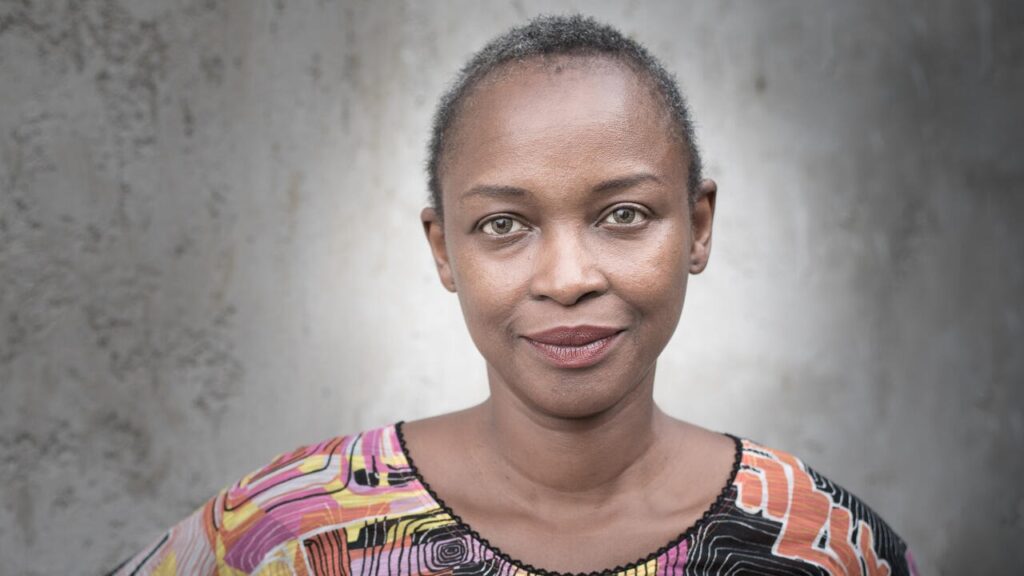
In the quiet of a Basel hospital room, on a Saturday that now marks the end of a visionary era, Koyo Kouoh—the brilliant and history-making curator of the upcoming 2026 Venice Biennale—passed away at the age of 57. Her death, following a recent and devastating cancer diagnosis, was confirmed by her husband, Philippe Mall, as reported by The New York Times. Though the world had only just begun to anticipate her groundbreaking vision for what is considered the most prestigious art exhibition on the planet, her time to share it was tragically cut short.
Born in Douala, Cameroon, in 1967, Kouoh’s journey to the heights of the international art world was anything but conventional. At the age of 13, she moved to Switzerland, a pivotal shift that would come to define her global perspective. She initially pursued a career far from the arts, studying administration and banking. But Kouoh was never one to follow predictable paths. Her early professional life saw her working as a social worker, aiding migrant women—an experience that no doubt deepened her sensitivity to issues of identity, migration, and marginalization, themes that would later echo throughout her curatorial work.
It wasn’t until 1996 that she fully immersed herself in the world of contemporary art, returning to Africa to root her practice in the continent’s creative richness. In Dakar, Senegal, she founded the RAW Material Company, an independent center for art, knowledge, and society. RAW became a hub for artists, thinkers, and cultural practitioners, offering a space where contemporary African art could thrive and be critically engaged with—on its own terms.
Her curatorial brilliance soon caught international attention. In 2016, she took the helm of the Zeitz Museum of Contemporary Art Africa (Zeitz MOCAA) in Cape Town as executive director and chief curator. There, she championed a new generation of African and diasporic artists, reshaping the institution into a vital platform for voices long sidelined in global art discourse. One of her standout curatorial achievements during this time was the 2022 retrospective of South African artist Tracey Rose—an exhibition that powerfully explored race, gender, and history with unflinching honesty.
Kouoh’s influence extended far beyond the African continent. In 2015, she curated Body Talk: Feminism, Sexuality and the Body in the Works of Six African Women Artists at WIELS Contemporary Art Centre in Brussels. The show boldly confronted Western assumptions about the female body, weaving together African feminist perspectives in a way rarely seen in European institutions. The following year, she curated Still (the) Barbarians at the Ireland Biennial in Limerick—an exploration of Ireland’s postcolonial identity, staged poignantly during the centenary of the 1916 Easter Rising.
Her ability to connect the political and the poetic, the local and the global, made her a singular force in the art world. So when the Venice Biennale announced in December 2024 that Koyo Kouoh would curate its 2026 edition, it marked a historic moment: she was not only the first woman from Africa to take on the role but also one of the few to bring such an unapologetically decolonial and deeply intellectual lens to the international stage.
The Biennale itself expressed profound sorrow in its official statement:
“Koyo Kouoh worked with passion, intellectual rigor, and vision on the conception and development of the Biennale Arte 2026. The presentation of the exhibition’s title and theme was due to take place in Venice on May 20.”
The organization went on to say:
“Her passing leaves an immense void in the world of contemporary art and in the international community of artists, curators, and scholars who had the privilege of knowing and admiring her extraordinary human and intellectual commitment.”
Italian Prime Minister Giorgia Meloni joined a chorus of global voices expressing grief, offering her condolences and describing Kouoh’s passing as both “untimely and sudden.”
And indeed, it was. Koyo Kouoh was a towering figure—intellectually fearless, artistically uncompromising, and deeply human. She didn’t just open doors for African artists; she reimagined the architecture of the art world itself, insisting that inclusion wasn’t an add-on, but a fundamental rethinking of who gets to tell the story of our time.
Though she will not see the Biennale she dreamed into being, her legacy is already etched into its very foundation. And for countless artists, curators, and cultural workers across continents, Koyo Kouoh’s life will remain a beacon: proof that art can be revolutionary, and that voices once pushed to the margins can, with courage and clarity, take center stage.

Bella Richardson is a dedicated journalist and news analyst known for her clear, thoughtful reporting and her ability to make complex stories accessible to a broad audience. With a Master of Science in Mass Communication, she brings both academic insight and real-world experience to her coverage of breaking news and trending topics throughout the United States.






